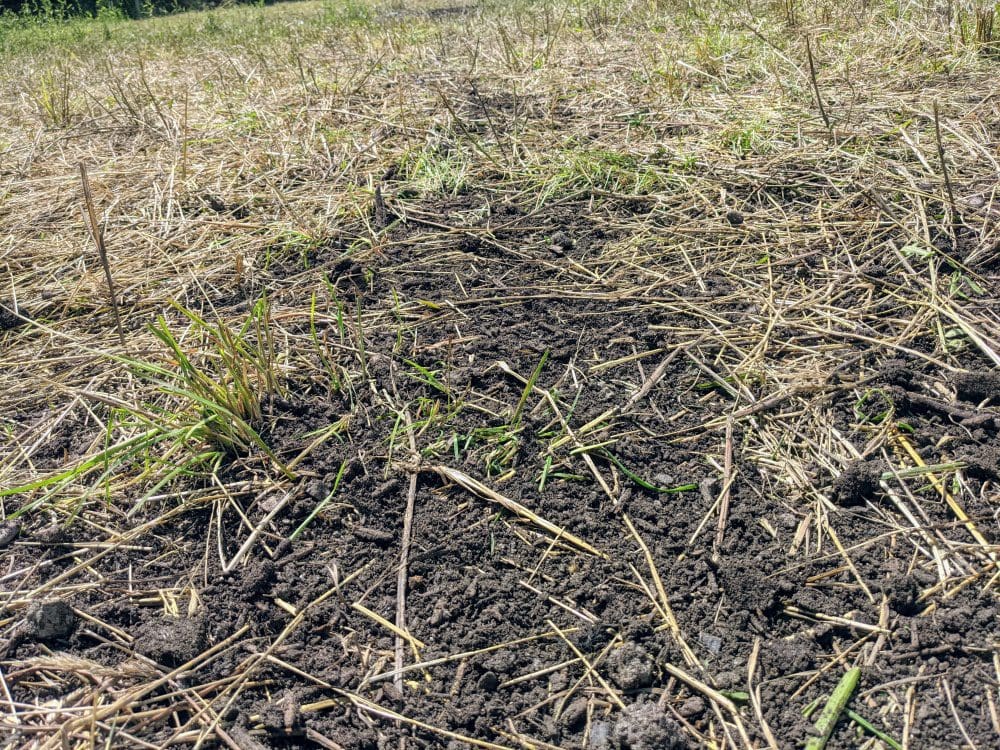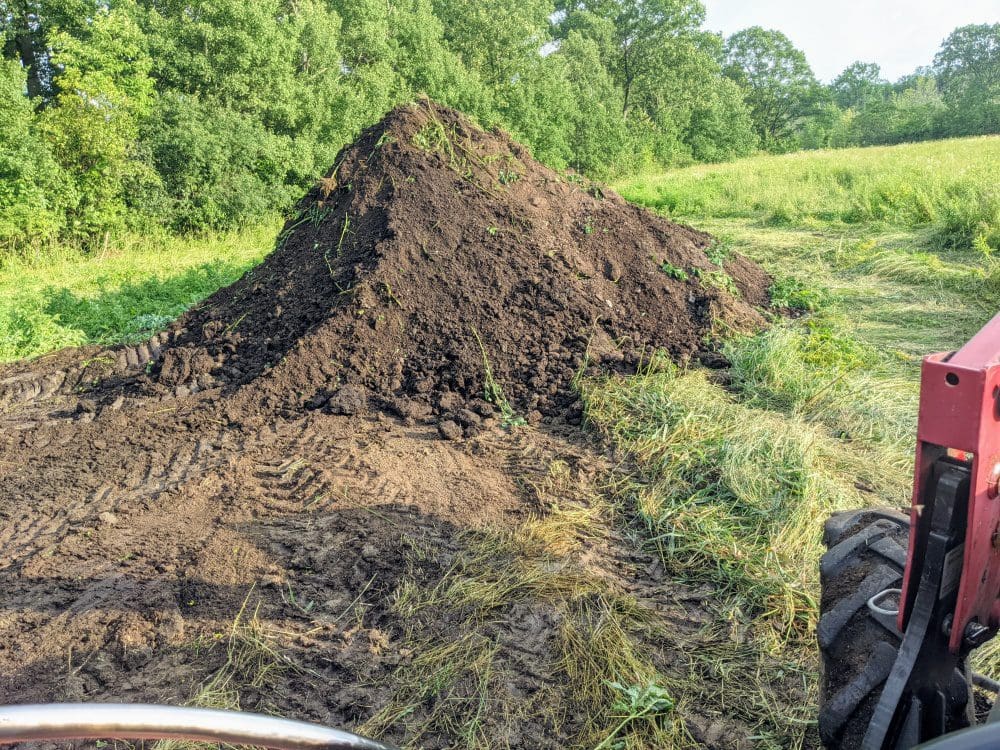Compost mentis: Pseudo-Latin for having compost on one’s mind. A common condition among farmers and gardeners.
With the help of a well-equipped neighbor, we were able to spread some compost yesterday. We worked through about 130 cubic yards before breaking a link on the chain that drives the augers on the spreader. There’s a truism in farming that spreaders never break when empty. Repairs always involve a lot of shoveling to dig down to the rock or frozen chunk that’s causing the problem. At least we weren’t dealing with a spreader full of manure; every farmer has stories of forking their way through a steaming load of manure to fix their spreader. Regardless of the setbacks, I’m glad that we were able to spread the compost.
I decided to apply the compost to the most knapweed- and multiflora rose-infested field we have. It also happens to be the least fertile field on the farm. My observation is that many weed problems are actually fertility problems, so adding the compost should change the composition of the plant species and shift things toward more palatable grasses and other forages. Of course, if this is the case, then everything I wrote last week about how the farm grows more grass as we improve the soil will mean that we’ll need to add still more cattle to graze all this!

Rachel grazed the cattle herd across the field and then after they left I went through with the tractor and mowed everything down to clip back the weeds. The compost was in great shape, consistent and crumbly, so I have high hopes for the value it will add to the pasture. With rain showers forecast for this week, the moisture should gently massage the compost into the soil. By this time next summer I should be able to gauge the success of this project, hopefully by standing in a greener, lusher field.

